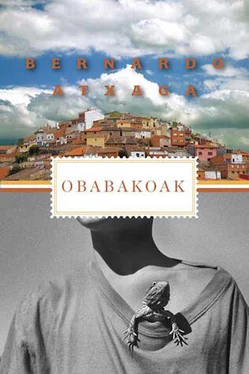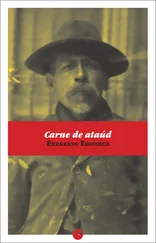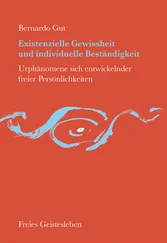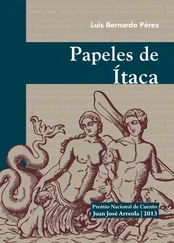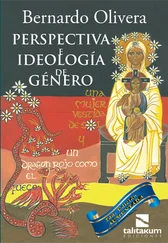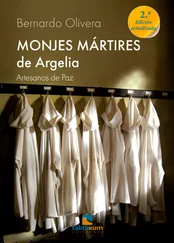Bernardo Atxaga - Obabakoak
Здесь есть возможность читать онлайн «Bernardo Atxaga - Obabakoak» весь текст электронной книги совершенно бесплатно (целиком полную версию без сокращений). В некоторых случаях можно слушать аудио, скачать через торрент в формате fb2 и присутствует краткое содержание. Год выпуска: 2010, Издательство: Graywolf Press, Жанр: Современная проза, на английском языке. Описание произведения, (предисловие) а так же отзывы посетителей доступны на портале библиотеки ЛибКат.
- Название:Obabakoak
- Автор:
- Издательство:Graywolf Press
- Жанр:
- Год:2010
- ISBN:нет данных
- Рейтинг книги:3 / 5. Голосов: 1
-
Избранное:Добавить в избранное
- Отзывы:
-
Ваша оценка:
- 60
- 1
- 2
- 3
- 4
- 5
Obabakoak: краткое содержание, описание и аннотация
Предлагаем к чтению аннотацию, описание, краткое содержание или предисловие (зависит от того, что написал сам автор книги «Obabakoak»). Если вы не нашли необходимую информацию о книге — напишите в комментариях, мы постараемся отыскать её.
Obabakoak
The Observer
Obabakoak — читать онлайн бесплатно полную книгу (весь текст) целиком
Ниже представлен текст книги, разбитый по страницам. Система сохранения места последней прочитанной страницы, позволяет с удобством читать онлайн бесплатно книгу «Obabakoak», без необходимости каждый раз заново искать на чём Вы остановились. Поставьте закладку, и сможете в любой момент перейти на страницу, на которой закончили чтение.
Интервал:
Закладка:
“No doubt you know him,” I said. That was a mistake. He turned toward me, a hurt look in his eyes. The cat’s eyes followed exactly the same trajectory.
“Of course I do!”
In his desire to make his reply as emphatic as possible, his voice — already shrill — cracked. Then it was my turn to feel embarrassed and it fell to Daniel to break the silence that followed.
“You don’t go walking in the woods anymore, then?” he remarked, for lack of anything else to say. But such familiarities were unacceptable to Tassis.
“I do go as it happens, often, it’s just that you haven’t chanced to see me there,” he answered coldly and said, by way of an excuse: “Now you must forgive me, but I was right in the middle of some studies.” And, without waiting for us to say our good-byes, he shut the door and left us alone on the doorstep.
We both felt as if we’d made some kind of gaffe and once in the bar — perhaps regretting having been so polite — Daniel became angrier than I’d ever seen him before.
“Did you see the arrogance of the man?” he began, and from then on I found it hard to silence him. How if he ever had a child like that he’d rather let him die; how deformed people like that were born to suffer and to make others suffer; and anyway what was he doing living up there; the whole place should be pulled down and the machines that did it could get rid of the little count too while they were at it.
In order to calm Daniel down, I tried to justify the dwarf’s behavior, I tried to make him see that it was understandable, in a way, that having the misfortune to be as he was, he would naturally feel ill-disposed toward other people, that he would interpret any interest another person might show in him as merely morbid curiosity.
But the truth of the matter was that I was hurt too. The dwarf’s scorn was a new experience for me. No doubt other people had regarded me as mere riffraff before but they’d never shown it so openly and had certainly never thrown it in my face as he had done.
I didn’t go back to the empty quarter. I considered having any kind of relationship with Enrique de Tassis an impossibility. And anyway, when all was said and done, I myself saw no reason to go running after him; it made me wonder too if my behavior was not, generally, a touch frivolous: observing, chatting, taking notes, the way a naturalist collects plants. Except that I wasn’t dealing with plants, I was dealing with the people of a village called Villamediana. If the dwarf wanted to be on his own, why shouldn’t he be, no one could stop him. He didn’t exist just to answer other people’s questions.
A month later I hadn’t exactly forgotten Tassis but I had consigned him to memory. And so it would have remained, had fate not determined that I meet him again one summer afternoon when I was looking for Daniel in the forest. That’s where our relationship really began, a relationship that, unfortunately, was to be limited to the seven walks we took together.
I saw him standing on the same path I was walking along, on the edge of the forest, looking at the stream bed that ran between the two plateaus that lay ahead. The wind kept snatching at the tails of his jacket.
I said a curt good afternoon and walked on.
“I rather hoped you might drop by my house again,” he said as I passed.
That was the last thing I had expected to hear him say.
He saw my surprise and made a grimace that was clearly intended as a smile.
“I know I was rather rude on that last occasion. But, to be honest, I don’t much like these inane provincials and I count the man who was with you as one of them. Do you know what I mean? An eminent thinker, who once traveled in these parts, really hit the nail on the head when he said that the real scourge of this place wasn’t insanity but inanity. I couldn’t agree more,” and he laughed an unpleasant laugh, half-child, half-woman.
“I can’t say it’s a remark I’ve heard before,” I said drily.
“But you have heard of the Count of Villamediana, isn’t that so? I got the impression last time that Juan de Tassis was not unknown to you.”
I nodded.
“A great poet, don’t you think?”
I replied that I was no scholar and knew only two or three sonnets by him. But that, yes, he must have been a great poet for his death to have merited a poem by Góngora. And that I did know about the circumstances of his death; about how, when the palace was rife with rumors of his supposed affair with the queen, he walked past the royal couple wearing a cloak sewn with silver sovereigns and embroidered with the punning motto: MY LOVE IS SOVEREIGN. And how it was a shame Felipe IV had taken it all so seriously, going so far as to have the joker killed.
He laughed all through my telling of the story in a way that a local might have termed peculiar.
Then he set off toward the forest almost at a run and, as if addressing the trees themselves, he began to declaim Góngora’s poem, which he knew by heart:
Slandermongers all of Madrid,
Why struggle to rewrite history?
Who killed the count need be no mystery
if you do as sense and reason bid.
One does not have to be the Cid
an upstart count to castigate.
Such reasoning is inaccurate,
vain lies concocted to invent
some murderous villain on crime intent,
— the impulse carried sovereign weight.
When he’d finished, he fell facedown on the grass, his arms outstretched. I was scared.
“The Tassis family have always been odd,” he said to me once he’d calmed down a little and got to his feet. But he was happy. It was clear that the story filled him with energy. Perhaps too much energy. “I do this walk every Friday at the same time. If it were just up to me I’d come more often but I don’t like leaving Claudia alone,” he added in a more gentle tone.
I assumed Claudia was his Persian cat.
“If you come here on Fridays, I’d be delighted to talk to you. You’re a cultured man. Not like those rude peasants from the village.”
I accepted his invitation and then we each went our separate ways.
The following Friday I made my way anxiously up to the woods. I wondered what we’d talk about and how I should behave toward a person like him; whether I should look at him — or rather, of necessity look down at him — or not; whether he’d like me to help him when he grew weary or whether, on the contrary, he’d consider that humiliating; and what would be the best course of action if he flew into one of his rages.
I was worried too that people would see us together. If they did, I felt sure I’d lose my good name in the village. Especially with Daniel. Because Daniel was still upset with the “little count.”
The moment Tassis saw me, he guessed what was in my thoughts and we’d barely gone two steps before he’d resolved the matter in his own fashion.
“Do you know where the word dwarf comes from?”
The question caught me out, because, of all the words in the dictionary, that was the one word that, right from the start, I had forbidden myself to use.
“No,” I stammered. In the words of the poet, my reply fell to earth like a stone.
“Well, it comes from the Old High German twerc, but has its origin in the Sanskrit dhváras. I don’t suppose you know what that means, do you?”
“No, I’ve no idea.” I was trying to act nonchalantly, as if we were talking about something like arithmetic.
“Well, it means a demon, something ugly and misshapen…”
“That’s certainly not true in your case. You’re not ugly,” I blurted out.
“How dare you!” he shouted, and for a moment I thought that, in his anger, he was about to hit me. “Please, no euphemisms where I’m concerned. Speak plainly.”
Читать дальшеИнтервал:
Закладка:
Похожие книги на «Obabakoak»
Представляем Вашему вниманию похожие книги на «Obabakoak» списком для выбора. Мы отобрали схожую по названию и смыслу литературу в надежде предоставить читателям больше вариантов отыскать новые, интересные, ещё непрочитанные произведения.
Обсуждение, отзывы о книге «Obabakoak» и просто собственные мнения читателей. Оставьте ваши комментарии, напишите, что Вы думаете о произведении, его смысле или главных героях. Укажите что конкретно понравилось, а что нет, и почему Вы так считаете.
